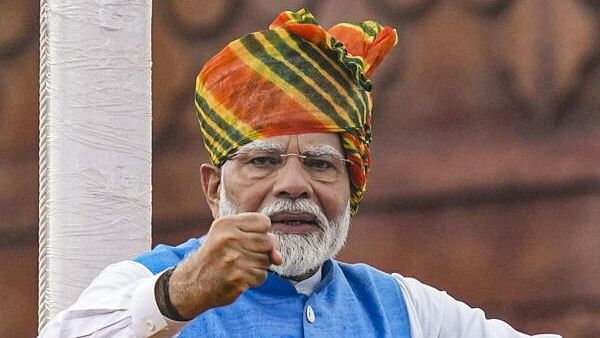
PM Narendra Modi
Credit: PTI Photo
Some events continue to exercise their impact much after they have taken place. The 2024 Lok Sabha election is one such event and the tremors it created continue to be felt in India’s political economy. Its latest impact is seen in the Union government’s recent announcement introducing the Unified Pension Scheme (UPS).
Before understanding UPS, let us understand India’s existing pension system.
India has had two major pension plans: the Old Pension Scheme (OPS) and the National Pension Scheme (NPS). The OPS is a Defined Benefit Scheme (DBS) where only government employees are covered. The NPS on the other hand is a Defined Contribution Scheme (DCS) which is open to not just public and private employees but also to all the citizens.
Worldwide there has been a shift from DBS to DCS due to two reasons. First, the pension liabilities of the governments have risen significantly due to the rise in life expectancy. Second, declining interest rates have led to a rise in liabilities. The pension funds typically invest in bond securities and hold them till maturity. The interest rates have declined over the decades which means there will not be enough interest income to match the defined benefits.
Accordingly, the Government of India introduced NPS for new public sector employees in 2004. In 2009, NPS was made available to all the citizens. Most states also adopted NPS barring two viz. West Bengal and Tamil Nadu. NPS was seen as this major reform which contributed immensely to restoring the fiscal health of both the Union and state governments.
However, nothing is permanent in India’s political economy. With the rising political dominance of the Bhartiya Janta Party (BJP), the opposition parties started offering the voters a switch back to OPS. The appeal of OPS is huge as it promises benefits to pensioners without any contribution. We saw the governments of Rajasthan, Chhattisgarh, Jharkhand, Punjab, and Himachal Pradesh go back to OPS. However, the newly elected government in Rajasthan switched back to NPS.
The introduction of UPS must be seen in the backdrop of this pension politics. The Union government led by BJP, which has been jolted by the general election results and is preparing to win over the electorate in the upcoming assembly polls, has introduced the UPS. This move reflects apprehensions within the BJP of it losing its political dominance and is a promise of assured pension to the voters.
UPS strikes a middle ground between NPS and OPS. It is neither a fully-government funded OPS, nor a fully-employee contributed NPS.
Even though UPS will add to the burden on the governments’ fiscal balances, the Centre has assured that the burden will be capped. The attention shifts to how state governments will react to UPS as there are some states whose fiscal position is already precarious and have large pension liabilities. The government of Maharashtra has announced it will introduce UPS eyeing the upcoming Assembly polls.
In its Annual Study of State Finances 2023-2024, RBI notes that “the debt-GDP ratio of States declined to 27.5 per cent as at end-March 2023 from the peak of 31 per cent at end-March 2021. At the individual level, however, the debt-GDP ratio for some States remains high”. The RBI data shows that five states have debt levels crossing 40% of GDP in 2024 (Arunachal Pradesh, Punjab, Nagaland, Himachal Pradesh, and Meghalaya). In terms of share of pension liabilities as a share of revenue expenditure, the top five states are: Himachal Pradesh, Nagaland, Kerala, Mizoram, and Uttar Pradesh. We see a few common names in the two lists. How many of them switch to UPS and how it will be rolled out will determine the future of state finances.
RBI economists in an earlier study cautioned that the cumulative fiscal burden in the case of OPS could be 4.5 times that of NPS. How much will it be for UPS will be known once more details are shared by the state governments.
As the politics in India’s pension economy heats up, it will be chaotic for governments and citizens. UPS can also be expanded as ‘U-turn Pension Scheme’ given that this is a U-turn from the Modi government’s usual policy stance of fiscal rectitude. This reflects fiscal adventure on the government’s side and could even result in a disaster for states. The BJP which ridiculed the Opposition for promising ‘revadis’ is now distributing a sweet delicacy ahead of state elections.
(Amol Agrawal is an economist teaching at Ahmedabad University.)
Disclaimer: The views expressed above are the author's own. They do not necessarily reflect the views of DH.